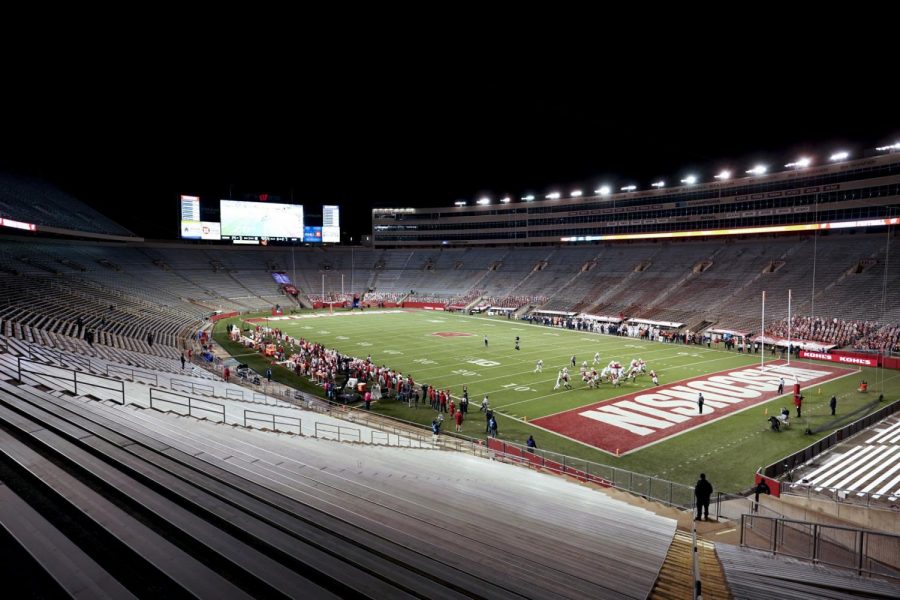Wisconsin Athletics’ $129 million budget proposal reflects uncertainty about next school year
April 1, 2021
The University of Wisconsin athletic department prepared for a multi-year return to pre-pandemic levels for some of its revenue streams as it planned its budget for the next school year.
A proposed operating budget of nearly $129 million for the 2021-22 fiscal year was a 7.5% decrease from what the department originally planned to spend this year before the coronavirus scuttled things.
Chief financial officer Adam Barnes said the budget proposal reflects a “good amount of conservatism” and uncertainty about how COVID-19 will continue to disrupt the next school year.
Graphic: Explore Wisconsin Badgers athletics revenue, spending since 2004-05
Revenues from licensing, Big Ten media distributions, sponsorship, concessions, camps and concerts aren’t expected to immediately get back to what UW had before the pandemic, Barnes told the Athletic Board’s Finance, Facilities and Operations Committee on Wednesday.
The proposed budget operates with an assumption of no restrictions on the number of fans allowed into Camp Randall Stadium, the Kohl Center and other venues next season. But it also works in some expected hesitancy by some to attend games in person even if numbers aren’t limited for health reasons.
“We do hedge a little bit and did build in a little bit of a discount here, knowing that there will be some portion of our fans who won’t be ready to come back into the stadium yet,” Barnes said.
The committee voted unanimously to forward the budget to the full Athletic Board for consideration at its April 23 meeting.
The proposal had $128.9 million in expenses, not including $14 million for capital projects funded by donations. The original 2020-21 budget had $139.6 million in revenue and $139.4 million in expenses but it was effectively rendered obsolete by the pandemic before it came into play at the start of July. Another $46 million was planned to be spent this year on capital projects, some of which was deferred.
UW’s projections for an operating shortfall in the current fiscal year narrowed from $47 million in January to $35 million this month, Barnes said. The update reflected higher revenue than expected from Big Ten TV rights and deeper cuts to expenses.
The 2021-22 budget proposal didn’t have any changes to ticket prices, Barnes said, and included a 14.5% reduction in operating expenses compared to the original 2020-21 plan.
Non-sports departments were kept to the essential-spending-only limits that have been in place this year. Barnes said teams were asked to keep expenses flat and look for savings on travel costs by encouraging regional competition.
“We examined every expense line, basically, with our department heads and our coaches in order to come up with an operating expense budget that we think helps us continue to achieve the mission,” Barnes said. “And I think we’ve done that.”
More money was allocated for financial aid to accommodate some seniors who elect to return for the extra season of eligibility allowed by the NCAA because of the pandemic.
Supreme Court sympathetic to college athletes in NCAA dispute
Barnes said the department doesn’t plan to institute furloughs or ask for voluntary salary reductions next year. Both were employed to reduce expenses this year with expected revenue nearly cut in half.
The budget process was a “challenging exercise,” deputy athletic director Chris McIntosh said.
“We’re making assumptions with a higher degree of uncertainty than we would have in a normal year,” he said.













